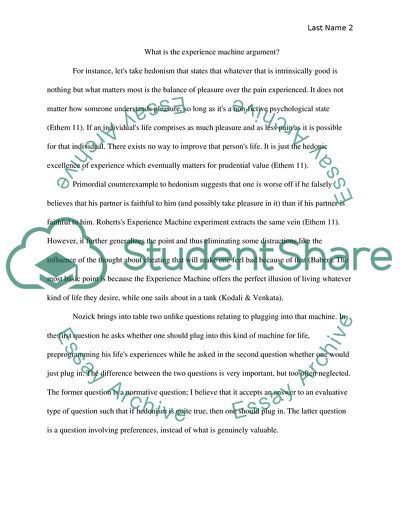Cite this document
(The Experience Machine Argument Report Example | Topics and Well Written Essays - 1250 words, n.d.)
The Experience Machine Argument Report Example | Topics and Well Written Essays - 1250 words. https://studentshare.org/philosophy/1835713-robert-nozick-the-experience-machine
The Experience Machine Argument Report Example | Topics and Well Written Essays - 1250 words. https://studentshare.org/philosophy/1835713-robert-nozick-the-experience-machine
(The Experience Machine Argument Report Example | Topics and Well Written Essays - 1250 Words)
The Experience Machine Argument Report Example | Topics and Well Written Essays - 1250 Words. https://studentshare.org/philosophy/1835713-robert-nozick-the-experience-machine.
The Experience Machine Argument Report Example | Topics and Well Written Essays - 1250 Words. https://studentshare.org/philosophy/1835713-robert-nozick-the-experience-machine.
“The Experience Machine Argument Report Example | Topics and Well Written Essays - 1250 Words”. https://studentshare.org/philosophy/1835713-robert-nozick-the-experience-machine.


